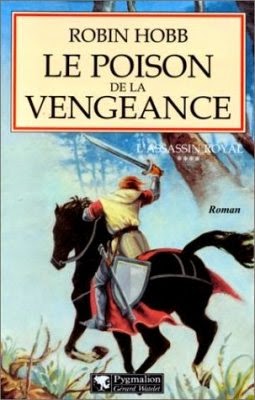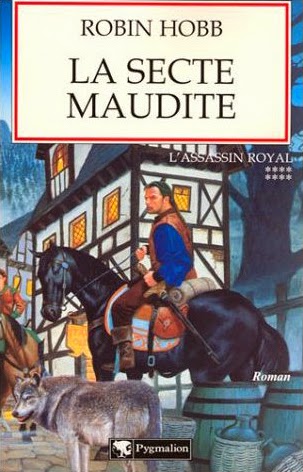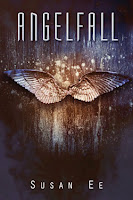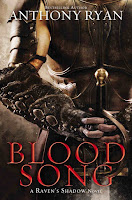
John Steinbeck
A l'Est d’Éden (East of Eden)
1952
Le plus beau livre du monde! Il n'y a rien que je puisse dire sur ce livre que Steinbeck n'a mieux écrit dans son bouquin.
Alors, à la place de mes mots, voici les siens, la dédicace que John Steinbeck écrivit pour A l'Est d’Éden:
"Dear Pat,
You came upon me carving some kind of little figure out of wood and you said, “Why don’t you make something for me?”
I asked you what you wanted, and you said, “A box.”
“What for?”
“To put things in.”
“What kind of things?”
“Whatever you have,” you said.
Well, here’s your box. Nearly everything I have is in it, and it is not full. Pain and excitement are in it, and feeling good or bad and evil thoughts and good thoughts- the pleasure of design and some despair and the indescribable joy of creation.
And on top of these are all the gratitude and love I have for you.
And still the box is not full.
JOHN"
Tags: the power and limits of mankind, good and evil and innocence, religious and philosophical thought, Biblical myth, racial relations and positive representation (finally!), positive female representation, family drama, 19th-century society, early 20th century, roman de mœurs, going through the years, destin, héros malmené, wild dusty west
 Edith Wharton
Edith WhartonThe Age of Innocence
1920
Ambiguity, nuance, maturity and a lot of honesty are what you learn through reading this one. By the end of the book, you're still wondering where the author stands in her work. And that's exactly where she gets her power from. You have to choose, you have to reflect on the characters, on why they can be so revolting and understandable at the same time; basically this is a reflection on your own self. These are the kind of people you'd never want to meet in real life, except to point at from your own corner and criticize. Suddenly, they are filling the room, they are filling your brain and you've got to take their own thoughts into account. How disturbingly good...If only for that, this is a literary masterpiece.
Tags: 19th-century society, roman de mœurs, ladies and gents' courtship dance, close quarters, our social world vs. our human quest, New York's social structure and relation to the Old World, study of femininity
Paulo Coelho
L'Alchimiste (O Alquimista)
1988
Susan Ee
Angelfall
Penryn and the End of Days I.
2011
For this one I really don't get where the hype comes from. What's supposed to be so great about the book? I just don't see it, I guess. All I see is a post-apocalyptic teenage harlequin! Post-apocalyptic teenage harlequin! Post-apocalyptic teenage harlequin! Oh, as far as a harlequin is concerned, it's fairly good, three-stars kinda good. But not worth much more than 2€, as a harlequin should!
Wanna know more? Read this.
Tags: low-demons or weird little biting creatures or little mixed-race frankenstein-monstrous vampires, bad bad angel bitch and, obviously, the ex-girlfriend, sister kidnapping, crazy mom' and everything that could complicate the heroine's pursuit of happiness, angels à toutes les sauces, kick-ass heroine, I have to give you that, it is a post-apocalyptic world, though it doesn't seem to bother anyone save for the resistance army, light-hearted rather than humorous, though, nice try, growing up facing hardship, definitely a difficult romance, biblical references, she's supposed to attempt to rescue her sister, when she remembers, race on a fundamental level, disappointing angel far-right fanatics, harlequin type of romance: quick wit and misunderstandings
Wallace Stegner
Angle of Repose
1971
This is the kind of book you'd feel a little proud to claim you love. It has everything a reader hopes for: a large-scale historical subject, themes of life, dramatic characters devoid of pathos, a good "plume", strong quotation material, references to famous authors,... and a Pulitzer Prize.
But to me, all of this was not enough.
It's as if readers and author were contemplating the same painting and seeing very different pictures. You can't help developing a strong resistance to the main character, Susan Ward. The narrator spends so much time including negative turns of luck in her life that he forgets to make her likeable; her best traits are too tamed by the constant return to her flaws. I'm not even sure he still likes her by the end of the book_ perhaps that was Stegner's point. Yet, we are sold that character time and again, and the more we are, the less we buy her. She's snob, elitist, uninteresting, incapable of changing and learning (contrarily to what the narrator claims), incapable of mesuring her efforts to the mesure of her vain ambitions, and constantly nagging her husband for not doing so. How to appreciate her?
Easier to like the 19th-century Agnes and Oliver, and the credibly naïve and silly Shelly, who, ironically, makes the 1970s bits the only moments really worth it.
Past the middle of the book, I started to understand nothing more was ever going to come out of this. That was the book's worst weakness: its incapacity to bring out the potential it constantly claimed to have. As the two stories set a century apart slowly went on, their dramatic peaks came too late to feel dramatic. The wife bits at the end felt like a hair in the soup. You sense these were parts of what the writer was driving at all along, but it's too late now to get to it, you're long past that; too many hundreds of pages have passed to make them actually matter.
Yes, at times, the writing is superb; but, let's face it: the book is boring.
Tags: "saga" familiale, fate, 19th-century hopes and restraints, wild dusty west, human vs. social quest, marriage of souls vs. marital success, vague mention of lesbian love thrown like a bone at the reader, the know-it-all not-so-young white man, slight, easy, unsatisfactory questions of gender, the weight of family, difficult wanderings, critique of hippie society, east vs. west or on being worldly in a wild world

Robin Hobb
L'Assassin Royal (The Farseer Trilogy):
L'Apprenti Assassin I. (Assassin Apprentice)
L'Assassin du Roi II. (Royal Assassin)
La Nef du Crépuscule III. (Royal Assassin)
Le Poison de la Vengeance IV. (Assassin's Quest)
Le Poison de la Vengeance IV. (Assassin's Quest)
La Voie Magique V. (Assassin's Quest)
L'Assassin Royal (The Tawny Man Trilogy)
Le Prophète Blanc VII. (Fool's Errand)
La Secte Maudite VIII. (Fool's Errand)

The Farseer Trilogy avait révolutionné le monde de la fantasy. Sa meilleure victoire, selon moi: ce n'était pas un choix entre la fantasy et le roman, l'aventure fantasmagorique et la profondeur de l'écriture; c'était un alliage. Qu'on retrouve ici. Une énième relecture et un gouffre d'années entre elles m'ont permis une réévaluation du premier Tawny Man livre, pas en comparaison de The Farseer Trilogy, mais en lui-même.
Hobb excelle ici en poursuivant une structure simple mais efficace, suivant son héros à travers ses pensées sombres et mélancoliques, comme ses aventures. Après un long début qui clarifie les relations entre le héros et chaque personnage, entre Fitz, ses magies, et lui-même, et qui installe l'intrigue pas à pas, l'histoire commence et le Fitz fort, charismatique et agressif qu'on aime tant revient en force. On ne retrouve pas l'excitation des intrigues politiques dans les étroits passages secrets de Castelcerf parce qu'on n'en est plus à découvrir un monde d'adulte par les yeux d'un enfant. Fitz a grandi, il fallait donc que les romans changent.

Mais tout y est. Une histoire solide, des moyens détournés mais sans extravagance pour parvenir à sa résolution, du suspense, l'installation d'intrigues futures...Bref, un roman bien tourné, qui se suffit à lui-même, tour à tour plaisant à lire et touchant. Il n'a pas tenté de me déchirer l'âme comme les romans de The Farseer Trilogy mais il m'a fait sourire, jubiler parfois, et tiré quelques larmes. Et, si les accros de fantasy noteront l'absence marquée de magie avec effets sonores et visuels, cette omission typique du style d'Hobb n'ôte rien au bouquin. Au contraire, en traitant la fantasy avec l'attention précise et posée qu'elle donne à tout, elle la renforce, la fait compter. On ne lit pas un roman de Fitz pour se divertir. On se plonge dedans.
P.S. C'est dans ce roman-ci (La Secte Maudite) que disparaît l'un des personnages principaux, alors le "quelques" dans "quelques larmes" était parce que je m'y attendais déjà...
P.S.
Évidemment, ces imbéciles d'éditeurs français avec leur obsession de
traduction rapide et de fric gâchent ce livre en le coupant en deux : le
premier volet devient une lente progression pleine de sentiments,
tandis que le second semble n'être qu'une série d'aventures. Ça change
tout au style voulu par l'auteur, je trouve, car ça rend les livres
inégaux et ça casse la fluidité de l'ambiance.
Tags: castles & châteaux, déguisements et role-playing, quête et aventures, début de tournure des relations homosociales de Fitz et le Fou, prophète blanc et catalyseur, les Autres, justesse ou non de la hiérarchie lord & vassal, mythopoeia (surtout niveau histoire et culture du vif), skill/art, wit/vif, rêves et piliers d'art, plusieurs factions politiques autour du vif, héros malmené, blurry line between animals and humans and where this line should stop,
but de la vie, la mort, la vieillesse, la nature humaine, et un peu de sagesse ici et là, Old Blood secte


Les Secrets de Castelcerf IX. (Golden Fool)
Serments et Deuils X. (Golden Fool)
Le Dragon des Glaces XI. (Fool's Fate)
L'Homme Noir XII. (Fool's Fate)
Adieux et Retrouvailles XIII. (Fool's Fate)
1995/1996/1997/2002/2003/2004
Blood SongRaven's Shadow I.
2013
Is it
pleasant to read? Yes. Is it good? Yes. Does it make you wanna read the
follow-up? Yes. Is it great, then? No.
It took a while for my interest to get piqued, but by Part II, the characters were finally starting to be put to a use, and the scenes became more gripping (save for a few badly-plotted ones), though to say they actually gripped me would be going too far. Blood Song is not so much original in the ways it builds the plot as in the plot itself. With the underlying questions of faiths, religions, and political power all intermingled, the book fares much better in intrigue than in characters (especially, since Vaelin lacks those little flawed traits that would make him a true hero).
Even after 730 pages, Blood Song remains very rough on sentiments, unsubtle, and you get the sense that this is precisely what Ryan wants. Instead, the work is thoroughly researched, and perhaps all those details on combat moves, horse care, and sword-fighting are what kept Ryan away from his characters; he’s more interested in telling us a story than in creating it, step by step. Mythopoeia, to cite one thing, is not so much cleverly diffused than spread like misplaced drops across the pages. It all works, however, and by those 730 pages, you know you’ve started to care. A shame, though, that, to me, the book became more interesting once it was over than while I was reading it. I would say it’s impossible to dislike it, but I found it equally as hard to love it.
It took a while for my interest to get piqued, but by Part II, the characters were finally starting to be put to a use, and the scenes became more gripping (save for a few badly-plotted ones), though to say they actually gripped me would be going too far. Blood Song is not so much original in the ways it builds the plot as in the plot itself. With the underlying questions of faiths, religions, and political power all intermingled, the book fares much better in intrigue than in characters (especially, since Vaelin lacks those little flawed traits that would make him a true hero).
Even after 730 pages, Blood Song remains very rough on sentiments, unsubtle, and you get the sense that this is precisely what Ryan wants. Instead, the work is thoroughly researched, and perhaps all those details on combat moves, horse care, and sword-fighting are what kept Ryan away from his characters; he’s more interested in telling us a story than in creating it, step by step. Mythopoeia, to cite one thing, is not so much cleverly diffused than spread like misplaced drops across the pages. It all works, however, and by those 730 pages, you know you’ve started to care. A shame, though, that, to me, the book became more interesting once it was over than while I was reading it. I would say it’s impossible to dislike it, but I found it equally as hard to love it.
Tags: Siège, High Keep, and boys growing up locked inside an Order House, fate and a visit across time periods, combat scenes and wars as convenient ellipses, tragic hero whose legend is a little bit too much for his very simple shoulders, a manipulative King, Blood Song or the ever powerful magic, Orders structure vs. Regal power, integrity of faith vs. religious manipulations vs. truth, thrilling suspense of religious and political games of power, beautiful evil manipulative bitch, spare the rod and spoil the child or the politic of 'tough love is still love'
Jacqueline HarpmanLe Bonheur dans le Crime
1993
Ah, ah! J'attendais d'écrire sur celui-ci...
C'est un plaisir coupable que de lire ce livre; on nage dans l'histoire, on regarde le tout d'un mauvais œil, et on tourne avec ferveur la page. Écrit dans un style dithyrambique à la limite, parfois, du mauvais goût, il a cette qualité de se relever grâce à son fond qui demande, et mérite, l'emphase. C'est une histoire qui doit être narrée plutôt que dite, qui doit être travaillée pour que lecteurs et auteur en tirent le plus parti. Vous l'aurez compris, dans ce crime il ne se passe pas grand chose mais qu'est-ce qu'il s'en passe...Et tout près, si près de chez nous...
Tags: naughty, naughty; famille & land; close quarters; psycho(se); religion; homosocial (and not just) relations; un peu de going through the years; roman de mœurs










